Cross-cultural adaptation of the EORTC QLQ-OES18 questionnaire to measure quality of life in patients with esophageal cancer in Colombia
Keywords:
Quality of life, Culture, Questionnaires, Esophageal neoplasmsAbstract
Objectives: To make a cross-cultural adaptation of the EORTC QLQ-OES18 quality of life scale to the Colombian context for patients with esophageal cancer.
Methods: Using the adaptation procedure proposed by the EORTC organization, the following steps were performed: transcultural adaptation request, first pilot test, linguistic adaptation and validation, second pilot test, and final version. In the first pilot test the scale was applied followed by a structured interview with a group of patients with esophageal cancer who attended a clinic in the National Institute of Cancerology. The aim of this was to identify problems of comprehension, confusion, offensive words, or more suitable paraphrasing of the items, and to make a linguistic adjustment of them.
Results: A group of 12 patients took part in each pilot test. Problems in six items were identified in the first test, for which more suitable paraphrasing was proposed. The EORTC translation group and the applicant group determined which of the proposed linguistic modifications could be adapted, in order to preserve the equivalence of the suggested Colombian Spanish version with the original English version. No difficulties in the items were observed in the second pilot test. A total of five items were modified and culturally adapted.
Conclusions: The adaptation process resulted in an easily understood questionnaire in Colombian cultural environment. A version of the QLQ-OES18 scale is available in Colombian Spanish to be validated and used in quality of life studies on patients with esophageal cancer.
Author Biographies
Claudia Ibáñez, Instituto Nacional de Cancerología
Grupo de Investigación Clínica, Instituto Nacional de Cancerología, Bogotá, D. C., Colombia
Fabio Sierra, Instituto Nacional de Cancerología
Grupo de Investigación Clínica, Instituto Nacional de Cancerología, Bogotá, D. C., Colombia
Ricardo Sánchez, Instituto Nacional de Cancerología
Grupo de Investigación Clínica, Instituto Nacional de Cancerología, Bogotá, D. C., Colombia
Facultad de Medicina, Universidad Nacional de Colombia, Bogotá, D. C., Colombia
References
Felce D, Perry J. Quality of life: its definition and measurement. Res Dev Disabil. 1995;16:51-74.
https://doi.org/10.1016/0891-4222(94)00028-8
WHOQOL user manual (Manual de instrucciones de la OMS sobre la calidad de vida). Ginebra: Organización Mundial de la Salud; 1998. (Documento inédito WHO/MNH/MHP/98.3).
Aaronson NK, Meyerowitz BE, Bard M, Bloom JR, Fawzy FI, Feldstein M, et al. Quality of life research in oncology. Past achievements and future priorities. Cancer. 1991;67(Suppl): 839-43.
https://doi.org/10.1002/1097-0142(19910201)67:3+<839::AID-CNCR2820671415>3.0.CO;2-0
Bullinger M, Anderson R, Cella D, Aaronson N. Developing and evaluating cross-cultural instruments from minimum requirements to optimal models. Qual Life Res. 1993;2:451-9.
https://doi.org/10.1007/BF00422219
American Society of Clinical Oncology. Outcomes of cancer treatment for technology assessment and cancer treatment guidelines. J Clin Oncol. 1996;14:671-9.
https://doi.org/10.1200/JCO.1996.14.2.671
Testa MA, Simonson DC. Assessment of quality-of-life outcomes. N Engl J Med. 1996;28:835-40.
https://doi.org/10.1056/NEJM199603283341306
Kuliś D, Arnott M, Greimel ER, Bottomley A, Koller M; Group EOfRaToCQoL. Trends in translation requests and arising issues regarding cultural adaptation. Expert Rev Pharmacoecon Outcomes Res. 2011;11:307-14.
https://doi.org/10.1586/erp.11.27
Cella D, Nowinski CJ. Measuring quality of life in chronic illness: the functional assessment of chronic illness therapy measurement system. Arch Phys Med Rehabil. 2002;83(12 Suppl 2):S10-7.
https://doi.org/10.1053/apmr.2002.36959
Aaronson NK, Ahmedzai S, Bergman B, Bullinger M, Cull A, Duez NJ, et al. The European Organization for Research and Treatment of Cancer QLQ-C30: a quality-of-life instrument for use in international clinical trials in oncology. J Natl Cancer Inst. 1993;85:365-76.
https://doi.org/10.1093/jnci/85.5.365
Herdman M, Fox-Rushby J, Badia X. 'Equivalence' and the translation and adaptation of health-related quality of life questionnaires. Qual Life Res. 1997;6:237-47.
https://doi.org/10.1023/A:1026410721664
Schmidt S, Bullinger M.Current issues in cross-cultural quality of life instrument development. Arch Phys Med Rehabil. 2003;84(4 Suppl 2):S29-34.
https://doi.org/10.1053/apmr.2003.50244
Wild D, Grove A, Martin M, Eremenco S, McElroy S, Verjee Lorenz A, et al. Principles of good practice for the translation and cultural adaptation process for patient-reported outcomes (PRO) measures: report of the ISPOR Task Force for Translation and Cultural Adaptation. Value Health. 2005;8:94-104.
https://doi.org/10.1111/j.1524-4733.2005.04054.x
Beaton DE, Bombardier C, Guillemin F, Ferraz MB. Guidelines for the process of cross-cultural adaptation of self-report measures. Spine. 2000;25:3186-91.
https://doi.org/10.1097/00007632-200012150-00014
Dewolf LKM, Velikova G, Johnson C, Scott N, Bottomley A. European Organization for Research and treatment of cancer, EORTC Quality of Life Group Translation Procedure. 3 Marzo 2009.
Hunt SM. Cross-cultural comparability of quality of life measures. Drug Inform J. 1993;27:395-400.
https://doi.org/10.1177/009286159302700223
Blazeby JM, Conroy T, Hammerlid E, Fayers P, Sezer O, Koller M, et al. Clinical and psychometric validation of an EORTC questionnaire module, the EORTC QLQ-OES18, to assess quality of life in patients with oesophageal cancer. Eur J Cancer. 2003; 39:1384-94.
https://doi.org/10.1016/S0959-8049(03)00270-3
Sánchez R, Venegas M, Otero J, Sánchez O. Adaptación transcultural de dos escalas para medir la calidad de vida en pacientes con cáncer en Colombia: EORTC QLQ-C30 y QLQ-BR23 Rev Colomb Cancerol; 2009;13:205-12.
https://doi.org/10.1016/S0123-9015(09)70119-2
República de Colombia, Instituto Nacional de Cancerología (INC). Anuario Estadístico 2010. Bogotá: INC; 2010.
EORTCQLQ - C30S coring Manual .3 .aed .2001.
Kaptein AA, Morita S, Sakamoto J. Quality of life in gastric cancer. World J Gastroenterol. 2005;11:3189-96.
https://doi.org/10.3748/wjg.v11.i21.3189
Gill TM, Feinstein AR. A critical appraisal of the quality of quality-of-life measurements. JAMA. 1994;272:619-26.
https://doi.org/10.1001/jama.1994.03520080061045
Scoggins JF, Patrick DL. The use of patient-reported outcomes instruments in registered clinical trials: evidence from ClinicalTrials.gov. Contemp Clin Trials. 2009;30:289-92.
https://doi.org/10.1016/j.cct.2009.02.005
Silveira AP, Gonçalves J, Sequeira T, Ribeiro C, Lopes C, Monteiro E, et al. Patient reported outcomes in head and neck cancer: selecting instruments for quality of life integration in clinical protocols. Head Neck Oncol. 2010;2:32.
https://doi.org/10.1186/1758-3284-2-32
Aaronson NK. Assessing the quality of life of patients in cancer clinical trials: Common problems and common sense solutions. Eur J Cancer. 1992;28A:1304-7.
https://doi.org/10.1016/0959-8049(92)90504-U
Guillemin F, Bombardier C, Beaton D. Cross-cultural adaptation of health-related quality of life measures: literature review and proposed guidelines. J Clin Epidemiol. 1993;46:1417-32.
How to Cite
Downloads
Downloads
Published
Issue
Section
License
Todos los derechos reservados.




